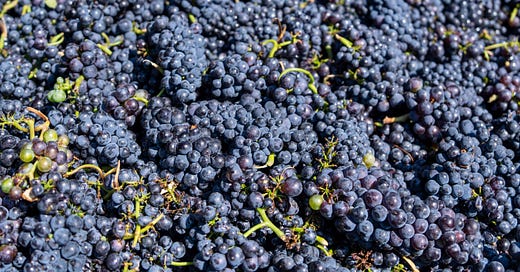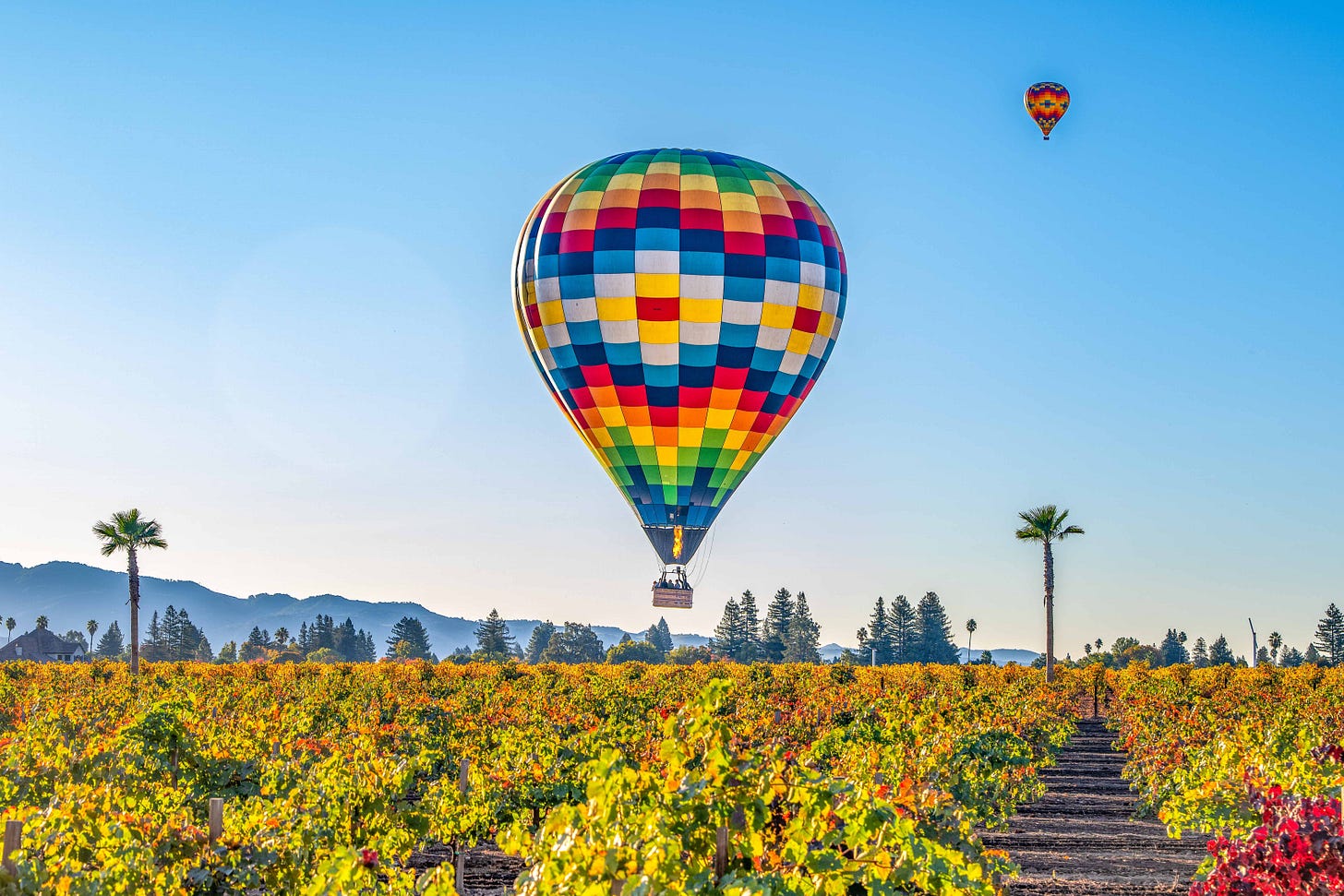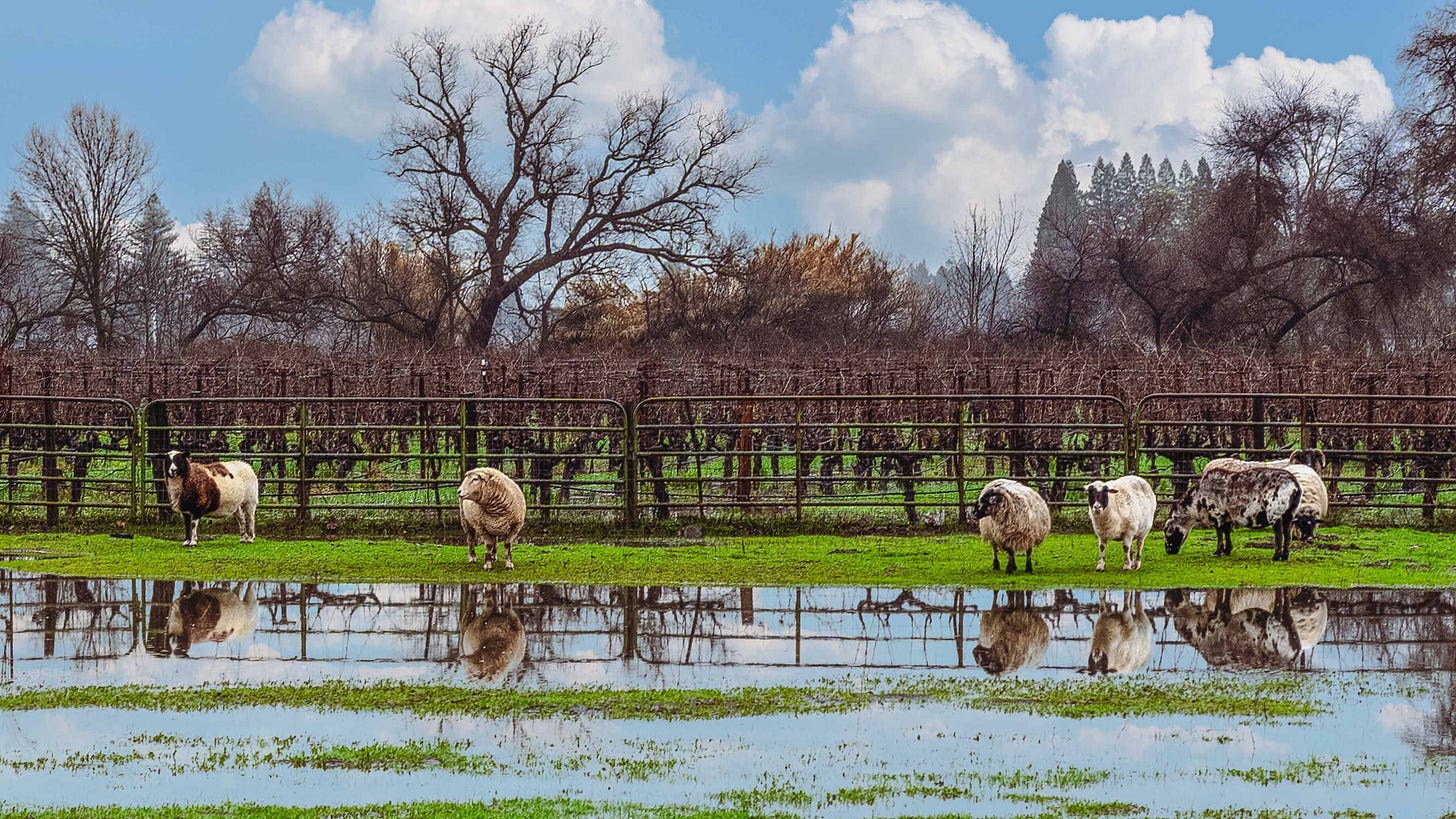NAPA VALLEY, Calif. — I’ve had several conversations lately with people about when we first started paying attention to the news. For some of us of a certain generation it was watching Walter Cronkite’s “CBS Evening News” or “The Huntley-Brinkley Report,” but many more remember the first time they started perusing the local newspaper to which their parents subscribed.
The reasons were many and varied. Some had discovered the comics, more commonly called “the funnies.” Or maybe they opened the paper to see the picture of their teacher or their class or their Girl Scout troop doing something important. I remember vividly following the bone-chilling Napa Register story in 1965 of a 5-year-old Napa girl who was kidnapped and murdered. I still think of Doreen Heskett when I drive past the farm where her body was found.
But what really started me reading the paper regularly were the letters to the editor. This was because there was a regular contributor named Orris McCartney. To the mind of an adolescent Beatle maniac, this magical name could only mean one thing: There lived — in Napa! — a man who was related to Paul McCartney, probably his cousin.
Orris McCartney was a man of highly conservative views, for his time anyway; one fears in today’s political world he would probably be labeled an unhinged liberal. Did my Beatle-maniac friends and I care about politics? No. Nonetheless, I would watch his letters and read them and tell my brother, 10 years my senior and home from college, about them. He, horrified, demanded, “Why are you reading what that John Bircher is writing?”
Because he was Paul’s cousin didn’t cut ice as an answer.
I have found myself thinking a lot about Mr. McCartney during this past tumultuous year in local journalism. Today, would he and I agree on anything? Probably not. But nonetheless, he and all the other letter-writers had a place to express their views.
There were gatekeepers, of course, for the letters: the editors, who reviewed all of them. Libelous and patently inaccurate letters didn’t make the cut, but Mr. McCartney was able to share his views with the community and not just with a set of people who felt as he did. Whether others agreed with him or not, he was part of the Napa community.
I saw more of the power of local newspapers during the years when I worked on the East Coast and then back in my hometown Napa. To some extent the local news provides an answer to Mr. Rogers’ question: Who are the people in your neighborhood? What are they doing? Saving animals or stockpiling guns?
The local news is also where you’ll find out when is the city going to fix the sidewalks, what to do this weekend and maybe why your tomatoes didn’t thrive. The notion of the Fourth Estate — journalists — as guardians of the republic may sound a bit exalted, but it is just as important to report on the city council as the president of the United States and those who aspire to be.
As one man said to me at a holiday party some years ago, “I was a newcomer to Yountville; I never felt like I was a part of it until I started reading the paper. Now I think the local paper is the glue that holds a community together. “
This year the demise of local newspapers has been a topic of considerable interest. The news has been filled with stories about news deserts: the destruction of local papers for the sake of corporate profits, mass layoffs, assets sold and the threat of AI. (Actually, come to think of it, I might rather see C-3PO and R2-D2 becoming editor and reporter dispensing the news than some television stations that are not news at all.)
Whenever people called to complain at the Register, where I worked for many years, I would find myself saying, “But at least we still have a daily paper.” That, of course, changed this year when its corporate owners, Lee Enterprises, decided to cut back to three issues a week, delivered by mail, and in other cutbacks eliminated my job.
Nearly nine months later, when people express their outrage about the changes, I have to tell them that while I understand their sense of loss with the diminished paper, for me it was the best thing that could have happened. I didn’t think so at the time, of course; I was more concerned with how I was going to pay my mortgage each month. But as it turned out, being jettisoned from the Register — “sacked” as Barry Martin so aptly termed it — gave me a chance to look up from one desk at one paper and at the greater news world.
“Newspapers are dying,” people tell me all the time. They have been saying it for years.
“No,” I’ve always said. “They’re just changing. They have to.”
A newspaper you read online is still a newspaper. Maybe you can’t turn the pages, but think of the trees it saves. The move to online papers gave us access to myriad news sources from around the world. Twenty years ago I read The New York Times, but I didn’t read The Washington Post, The Guardian, the LA Times, Figaro and the Press Democrat. Not all change is bad. It really becomes a question of what shape that news delivery will take.
Seeing what has happened in Napa Valley this past year — and being lucky enough to be a part of it — persuades me that glimmers of light are flickering up from a Pandora’s box of dismal prospects. For me the reassurance that I’d still keep my own lights on came first from people I’d written about asking me to do some writing for them. Even the Napa Valley Vintners. This was a welcome shock.
Then Tim Carl, my colleague from Register days, bounded into a meeting to tell me what he had dreamed up in the middle of the night: a Substack publication, Napa Valley Features, written by a collective of writers. And as the year ends, 2,500 people are reading his creation. I look at the numbers in amazement. A story might get 5,000 hits online. This never happened to me at the Register.
Next I got a call from Rick Green at The Press Democrat, which we used to know as the Santa Rosa Press Democrat, the big, important metro daily to the northwest of Napa. They were thinking it was time to expand purposeful coverage into Napa County. Did I want to write for them? Ye gads, I could only think: This is a paper that won a Pulitzer. I said yes.
And I also began doing a bit of work for a local startup, Highway 29 Media, founded to purchase and continue two local weekly papers in danger of closing, The Yountville Sun and The Calistoga Tribune, but also looking at the bigger picture of how to provide valley-wide news. Highway 29 is a quieter group but worth paying attention to: The co-founder, with Larry Kamer, is a Yountville resident, Marc Hand, who is also the co-founder of the National Trust for Community News. This young nonprofit has been doing remarkable work around the United States, acquiring threatened local papers in such far-flung locations Colorado, Maine and Georgia and helping them thrive.
I ended up working for all three enterprises, feeling like a 20-something reporter dashing off to write a story for the Press Democrat, working with new young writers at Highway 29 and then circling back to write a story for Napa Valley Features for the pleasure of telling a story.
The greater takeaway from all this activity is this: People in this valley still care about local news; they want it, they need it. Will they support it?
With the advent of the new year, I’ve been thinking that I need to settle down, choose one enterprise and get back to doing things like my laundry. My garden has gone to weeds and my new novel, while garnering much inspiration, is unfinished.
What’s the answer? What to choose? What is going to survive and thrive? As I wonder about this, I keep coming back to a crazy idea — alien to a journalist early on who gets hooked on the adrenaline rush of getting the story first, leading the pack, beating out the others — that maybe all three might function in a complementary way; indeed, maybe we are lucky to have all three — a news jungle rather than a desert.
Is it possible? This is going to be such an all-important year for our country, a defining moment that determines who we are and where we will go. The alarming divisions in the United States, from citizen to citizen, state to state, nurtured for self-interest and profit if not greed, could be our undoing.
And what if the answer to healing the breaches might begin with community news — in whatever shape it takes — where people come together to learn about their neighbors, their neighborhood, their city and their county? Where everyone has a place, including the Mr. McCartneys of the world?
We will see.

Last week
Napa Valley Features offered content on a variety of subjects in the week just past. Dave Stoneberg kicked off the week with the news that three groups are planning to build hotels in the St. Helena area; later in the week he reported on the efforts to reduce fuel for wildfires. Gary Fisch offered his list of top 10 Napa Valley wines, and we were saddened to learn that legendary Napa Valley winemaker Mike Grgich had passed at age 100. Eduardo Dingler wrote about a disrupter in the wine world, Malek Amrani; Lisa Adams Walter told of a Napa holiday tradition, malfatti, Napa’s legendary dumpling. Tim Carl reported on his experiences in Japan, and I offered memories of my grandmothers and their gifts.
Coming up
For the next couple of weeks, Napa Valley Features will be running 13 of the most popular stories published this year. This means, that, except in the case of breaking news, the writers, including this one, will be finding their joy in seeing family and friends, savoring meals together, and marking the solstice and the gradual return to light in 2024. We wish you all the best. And we hope you will continue to believe in the power of local news.
Sasha Paulsen is a Napa Valley-based novelist and journalist.









Thank you Sasha! I enjoyed your ode to newspapers. And the Orris McCartney part stirred memories for me. What a character! When I worked at The Register, there was always a stack of McCartney letter in the bottom of the copy basket. He was prolific! They ran regularly, and we always knew there was one available if there was a hole to fill in the letters section.
Thank you. I am so grateful to everyone dedicated to sharing knowledge about our people and our community and of course the world’s larger community. But thank you for starting here. Modern town criers are essential to our existence.